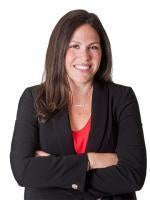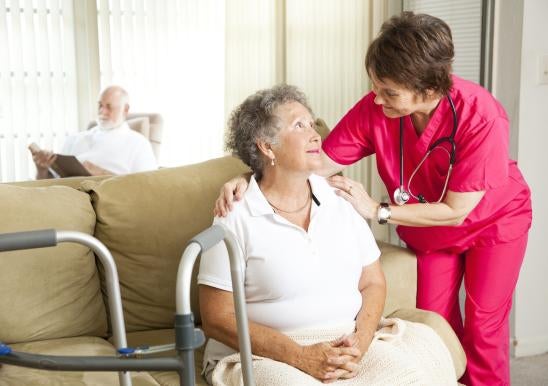On Friday, March 13, 2020, the Centers for Medicare and Medicaid Services (CMS) announced blanket waivers of certain nursing facility requirements under Medicare rules, along with critical new measures aimed at protecting nursing home residents from the Coronavirus Disease 2019 (COVID-19). The waiver guidance is in the form of a findings letter document authored by CMS Administrator Seema Verma, and the safety measure guidance takes the form of a memorandum and is based on the newest recommendations from the Centers for Disease Control and Prevention (CDC). Both guidance documents take effect immediately. Please note, CMS’s response to COVID-19 is evolving rapidly and the information below is current only as of March 17, 2020.
Medicare SNF Benefit Requirement Waivers
In response to COVID-19 and in light of the president’s Proclamation on the Declaration of National Emergency, CMS has exercised its authority pursuant to Section 1135 of the Social Security Act to implement waivers of program requirements during the COVID-19 public health emergency.1 Specifically, CMS has waived Medicare requirements that skilled nursing facility (SNF) care only be reimbursed when a beneficiary first has an inpatient hospital stay of at least three consecutive days on the basis that covering SNF care under the COVID-ID national emergency would not increase total payments under the Medicare program and would not change the essential acute-care nature of the Medicare SNF benefit, pursuant to the restrictions specified in connection with such public health emergency. Specifically, the waiver provides Medicare coverage for SNF care without a three-day inpatient hospital stay for beneficiaries who experience dislocations or are otherwise affected by the emergency, including those who (1) are evacuated from a nursing home in the emergency area, (2) are discharged from a hospital in order to provide care to more seriously ill patients, or (3) need SNF care as a result of the emergency, regardless of whether they were in a hospital or nursing home prior to the emergency.
CMS also will recognize special circumstances for certain beneficiaries who would otherwise be prohibited from receiving additional SNF benefits until they establish a new benefit period (i.e., breaking the spell of illness by being discharged to a custodial care or noninstitutional setting for at least 60 days), and thus will waive such requirement and cover additional SNF care without requiring a break in the spell of illness for those beneficiaries in connection with the emergency. Accordingly, CMS will provide beneficiaries renewed coverage for extended care services which will not first require starting a new spell of illness for such beneficiaries, who can then receive up to an additional 100 days of SNF Part A coverage for care needed as a result of the emergency. Note however, that this policy will apply only for those beneficiaries who have been delayed or prevented by the emergency itself from commencing or completing the process of ending their current benefit period and renewing their SNF benefits that would have occurred under normal circumstances.
Protection of Residents Guidance
CMS also issued a detailed memorandum containing the following directives to all nursing homes:
-
Restrict visitation of all visitors and nonessential health care personnel, except for certain compassionate care situations, such as end-of-life instances.
-
For permitted visits, suggest refraining from physical contact, and request that visitors monitor for symptoms post-visit and notify the facility should they become COVID-19 symptomatic within 14 days of any facility visit.
-
If possible, create dedicated visiting areas for permitted visitors near the entrance and disinfect rooms after each resident-visitor meeting.
-
Review and revise how facilities interact with vendors and take necessary actions to prevent potential transmission; when possible, restrict entry of these visitors within facilities.
-
Cancel communal dining and group activities.
-
Implement active screening of residents and staff for fever and respiratory symptoms.
-
Remind residents to practice social distancing and perform frequent hand hygiene.
-
Screen all staff at the start of shifts for fever and respiratory symptoms, including actively taking temperatures and documenting any changes.
-
For permitted visitors (e.g., end-of-life situations, emergency survey, etc.), provide instructions on hand hygiene, screen for symptoms, and where appropriate, restrict even excepted visitor access if they show symptoms of COVID-19.
-
Identify staff who work at multiple facilities and performed frequent screenings and restrict as appropriate to reduce risk of COVID-19 transmission across facilities and residents.
-
To the extent feasible, provide residents alternative means of communications including virtual communications, and provide frequent updates to families, staff, and residents regarding protocols and restrictions in place.
-
Residents still have the right to access the Ombudsman program, but restrictions consistent with the above guidance may be warranted.
What to Do with Residents with Confirmed or Suspected COVID-19 Diagnoses
CMS’s guidance also instructs nursing homes with residents suspected of having COVID-19 to contact their local health department and transfer the affected resident to a hospital if they do not have an airborne infection isolation room and the symptoms warrant such transfer. Nursing homes that are asked to accept residents diagnosed with COVID-19 from a hospital may accept the residents as long as the facility can follow then-current CDC guidance for Transmission-Based Precautions. This guidance is changing rapidly as the CDC learns more about the COVID-19 virus and adapts protocols accordingly. Facilities are advised to continue normal admissions, and if possible, dedicate a unit/wing to serve as a step-down unit where such residents remain for 14 days with no symptoms for any resident coming or returning from hospitals where a case of COVID-19 is/was present.
Survey Procedures and Adjustments
CMS is aware of the scarcity of some supplies in certain geographic areas, and has directed state and federal surveyors not to cite facilities for not having certain supplies if facilities have been unable to obtain such supplies for reasons outside of their control. However, CMS expects facilities to take actions to mitigate resource shortages, like substituting effective hand washing with soap and water in the event of a supply shortage of alcohol-based hand rubs. If a facility experiences a shortage of personal protective equipment (PPE), the facility should contact its health department and follow national guidance for optimizing their current supply.
Resources Available to Long-Term Care Facilities
CMS urges facilities to avail themselves of the CDC and CMS resources available to them, including infection prevention training and infection control self-assessment resources, CDC updates and FAQs pertaining specifically to COVID-19, and links to infection control and prevention regulations and guidance. These resources are listed and linked within the CMS memo.
1 An overview of all current CMS waivers is available on the CMS website.



 i
i

